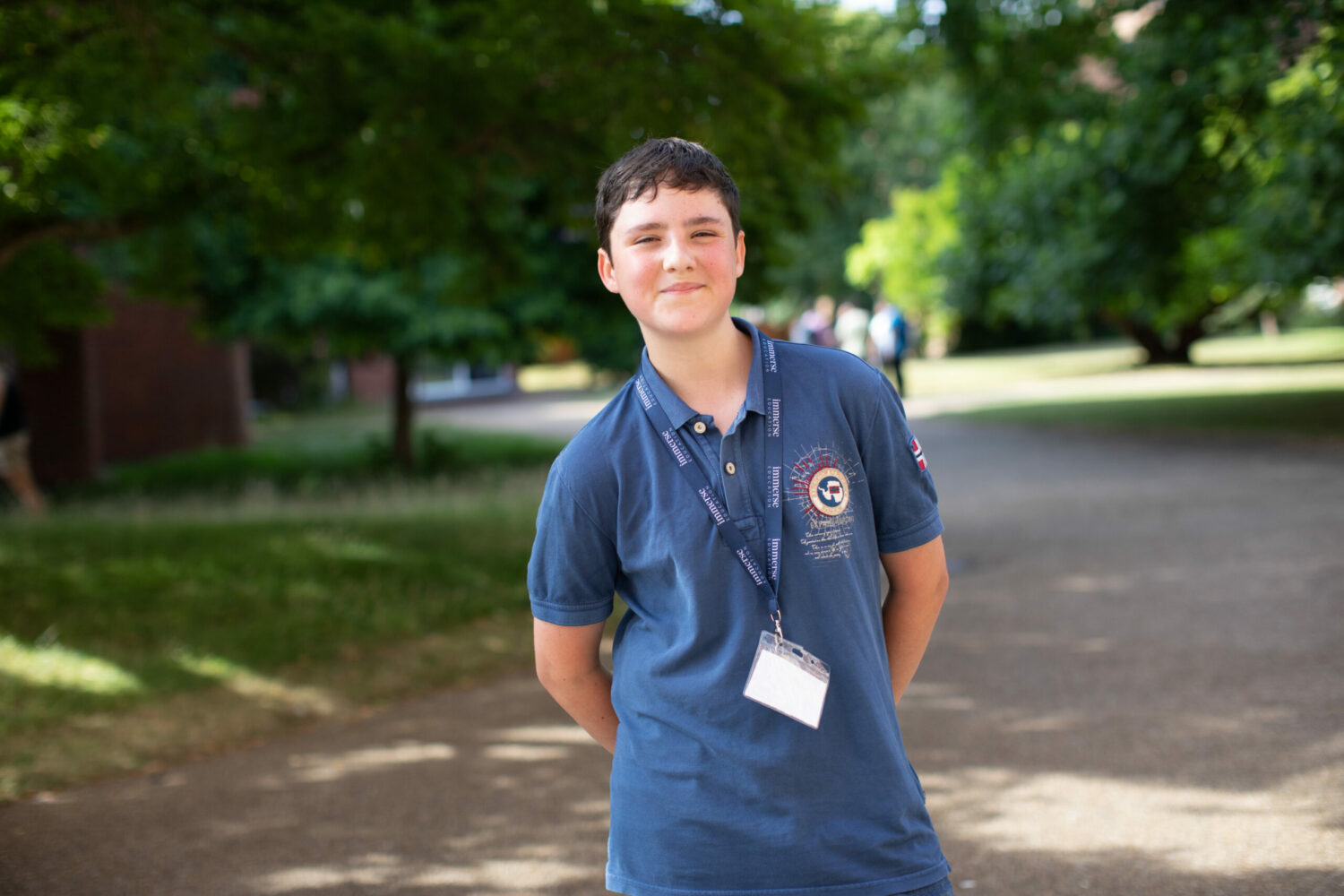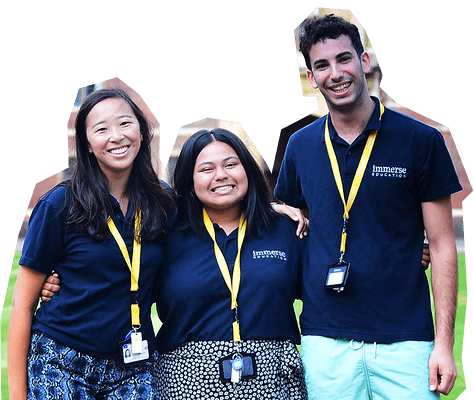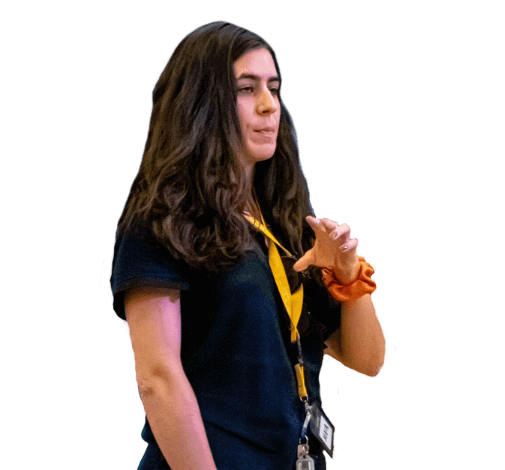Nanotechnology Summer Schools

Unparalleled academic programmes
Nanotechnology
Nanotechnology
I’ve enjoyed meeting new people with Immerse, people who have different passions than I do and are studying different courses – I have learned a lot from them.
Lady Margaret Hall, the college I’m staying in, is such a beautiful college. It’s got so many different areas we can study and play and have fun. I’ve also been learning so much about computer science, which is something I really enjoy.
I’m finding the course content extremely useful. I’ve learned so much in these two weeks and we’ve covered so many new topics that I hadn’t heard of. The relationship with my teacher has been fabulous – I can communicate with him very easily, and the teaching style is what I had expected, with university-style teaching methods.
I think this program has really helped me to to change my ideas about what I could expect from university, and it’s really helped me to make sure I enjoyed what I want to study in the future.


About the Immerse Nanotechnology Summer School
Nanotechnology is the branch of technology that deals with dimensions less than 100 nanometres, especially the manipulation of individual atoms and molecules. To put this into perspective, nanoparticles cannot be seen by the human eye, such as a single strand of human DNA that is 2.5 nanometers in diameter. The aim of the nanotechnology programme is to give students a well-rounded understanding of the complex and intriguing field of nanotechnology. This programme is well suited to anyone interested in biotechnology, medicine, technology and other sciences.
Frequently Asked Questions
Nanotechnology is the study of how to manipulate matter on the nanoscale. “Nano” is one-billionth of a meter.
The production of engineered nanomaterials is a rapidly developing field, with a wide range of applications in many different industries.
Nanotechnologies offer potentially huge benefits to society, industry, the environment and health. They can help us improve our quality of life and respond to some of the key issues of the day, such as climate change by cutting greenhouse gas emissions.
Because it inspires innovation, which drives human progress.
Nanotechnology continues to contribute to major advances in electronics, and computing, leading to faster, smaller, and more portable systems that can manage and store vast amounts of information.
Nanotechnology has the potential to increase the efficiency of energy consumption, help clean the environment, and solve major health problems.
- Applications Engineer.
- Director of Product Marketing.
- Director of Research.
- Holography and Optics Technician.
- Manufacturing Engineer.
- Mechanical Engineer.
- Optical Assembly Technician.
Nanotechnologists are typically employed in:
- universities and research institutions
- government laboratories
- hospitals and clinics
- industry
- private research facilities.
Immerse Education offers Nanotechnology for residential summer school students. The summer course takes place in the city of Cambridge, with students staying in the prestigious colleges of Cambridge University.
You don’t need specific skills or experiences to study Nanotechnology. Of course, having an active interest in the subject is helpful. You can dive into it without prior learning as we provide learning documents before the course starts.
Research in Nanoscience
In this module, you will continue to broaden your understanding of research in the field, taking a deep dive into the interdisciplinary aspects of modern nanoscience and nanotechnology. During this module, you will work in groups to form a presentation showcasing your knowledge built from a group of nanoscience researchers studied, presenting current and thematic research examples in the area of nanoscience.
Nanofabrication
Throughout this aspect of the course, you will be introduced to the principles and practice of nanofabrication. Topics will likely cover lithography, pattern transfer, inspection and electrical testing. You will also gain the opportunity to complete a short fabrication project during this part of the course.
Research Methods & Techniques
Solidifying your knowledge base and skill set in the realm of nanoscience research, you will explore the fundamental principles of the scientific method. You will deepen your understanding and skillset in core scientific research skills including planning, designing, executing, evaluating and presenting research effectively.
Microwave & Millimetre Circuit Design
The Microwave and Millimetre Circuit Design module is designed to provide you with the fundamental knowledge of microwave and millimetre-wave components and to develop the skills necessary for circuit design. This foundation is extended to integrate such components into more complex systems such as TX/TR in modern communications and imaging systems taking into consideration applied techniques and technology involved.
Microscopy & Optics
You will build a fundamental understanding of a variety of microscopic and spectroscopic methodologies used to study biological systems. After completing this module, you will understand the operating principles behind these methods and be able to identify the most suitable methodology for studying a given sample. This understanding will be achieved through a combination of academic sessions and practical laboratory workshops.
Nano & Atomic Scale Imaging
Explore the underlying physical principles required to comprehend widely applied techniques for the characterisation of materials that depend critically upon structural features at the nanometre and atomic length scales. The techniques covered in this module include Scanning Electron Microscopy (SEM), Scanning Probe Microscopy (SPM) and Transmission Electron Microscopy (TEM). The physics governing these techniques are taught along with an emphasis on practical knowledge.
Quantum Electronic Devices
This module takes a close look at Quantum Electronic Devices and considers the design and operation of advanced semiconducting and superconducting devices, to the fundamentals of quantum technologies and their applications for sensing and computing. By the end of this unit, you will have an understanding of what quantum electronic devices are and their place in the study of nanoscience.
The Immerse Education Nanotechnology summer course is best suited for motivated high school students ages 16-18. If you’re looking to take engineering, physics, or chemistry, this summer course is a great mix of everything.
Students searching for expert tutoring from top Universities such as the University of Cambridge are also perfect for this residential course.




